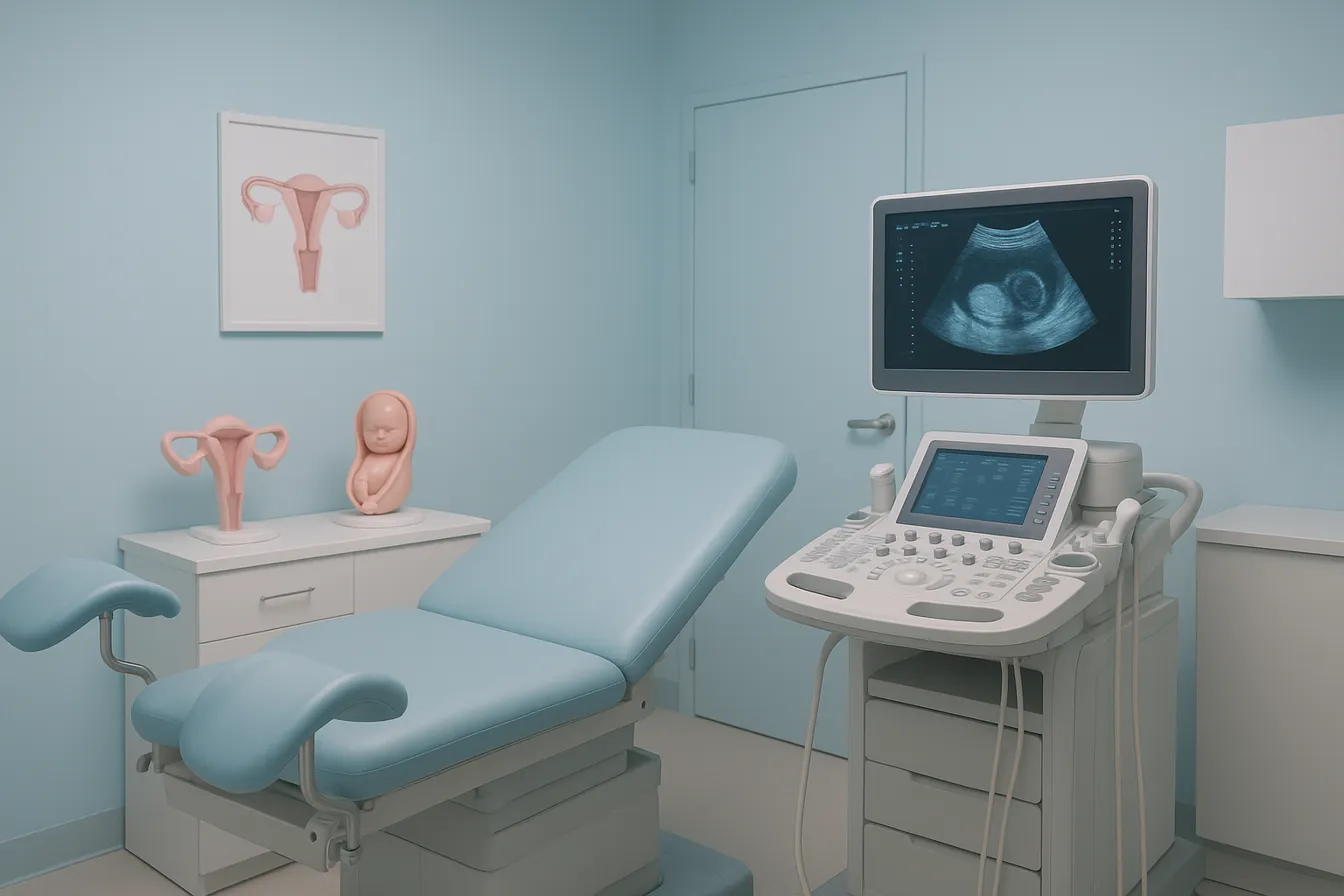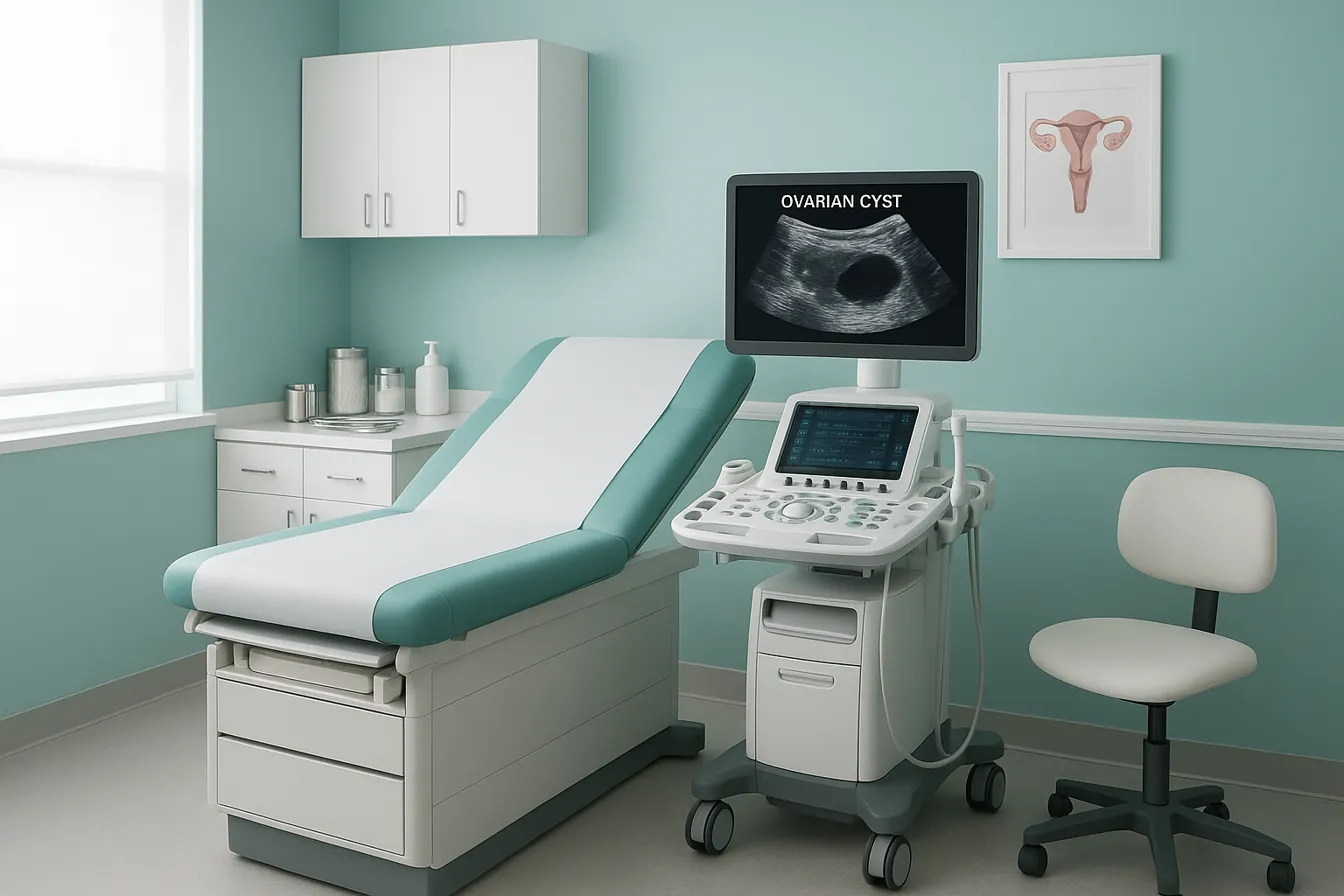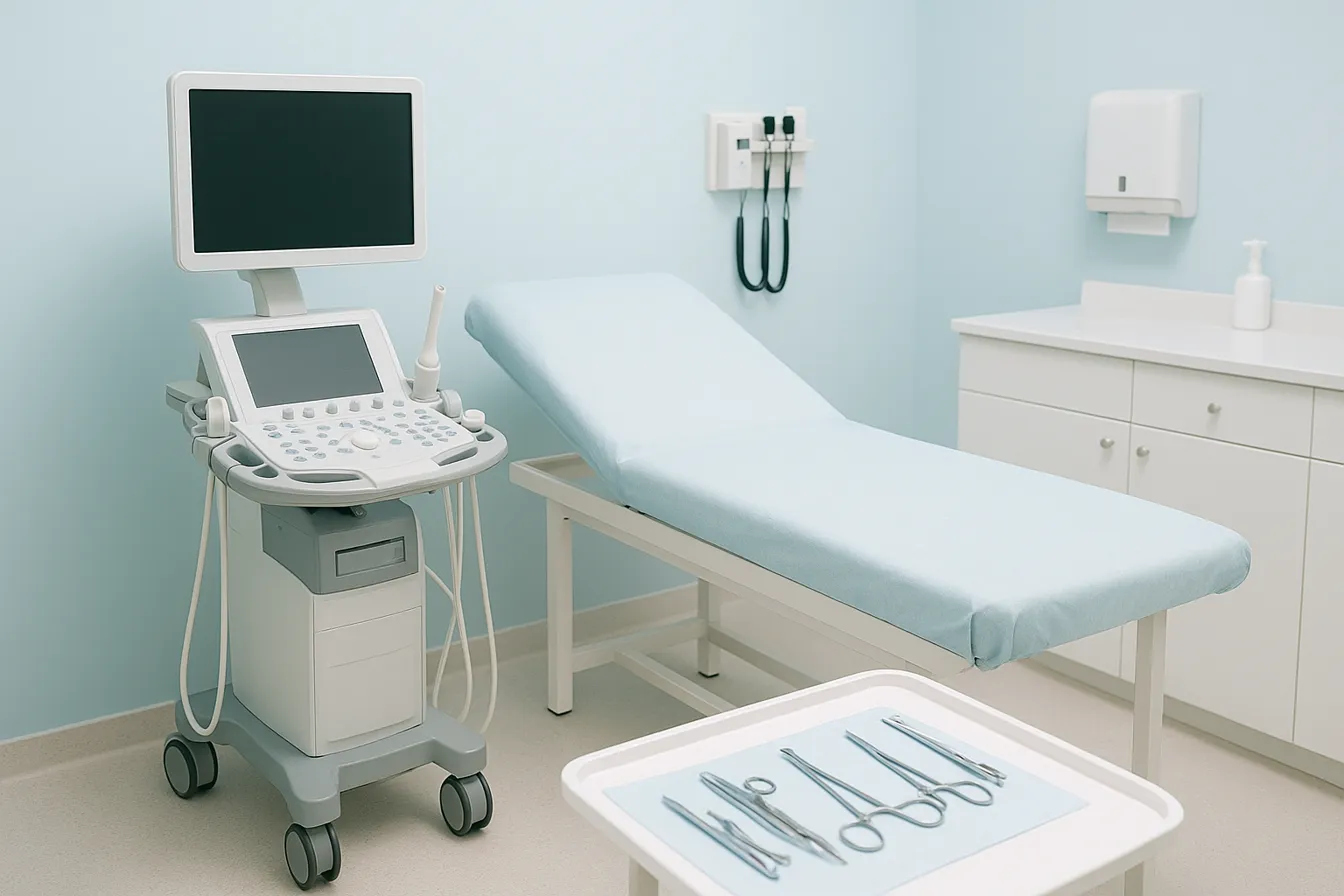Navigating Women's Health: A Comprehensive Guide Across Life Stages

Understanding the Importance of Proactive Gynecological Care
Regular gynecological check-ups are crucial for maintaining women's reproductive and overall health. Starting from age 21, routine visits allow for early detection of issues such as cervical abnormalities, infections, and cancers.
Early diagnosis through screenings like Pap smears and pelvic exams helps manage conditions effectively, minimizing complications. Personalized treatment plans address individual concerns, improving outcomes for disorders like PCOS, endometriosis, and fibroids.
Common gynecological conditions include menstrual irregularities, ovarian cysts, uterine fibroids, and infections. Proactive care and awareness of symptoms can lead to timely medical intervention, supporting long-term wellness and quality of life for women.
Key Facts List: Women's Gynecological and Reproductive Health
- Regular gynecological check-ups, including pelvic exams and Pap smears, detect early signs of abnormalities and improve treatment outcomes.
- Women over 21 should schedule biannual visits, ensuring timely management of emerging health issues.
- Routine screenings identify HPV infections, dysplasia, and cancers, facilitating early intervention and better prognosis.
- Daily genital hygiene with mild, unscented soap and breathable cotton underwear helps prevent infections.
- A balanced diet rich in fruits, vegetables, lean proteins, and anti-inflammatory foods supports hormonal and reproductive health.
- Regular physical activity like walking, swimming, and yoga improves pelvic circulation and reduces stress, supporting reproductive health.
- Managing stress through yoga, hobbies, and sleep helps maintain hormonal balance and reduces symptoms of gynecological conditions.
- Use barrier protection and regular screenings to prevent STIs, which can lead to PID and infertility if untreated.
- Advanced diagnostics like 3D/4D ultrasounds, molecular testing, and minimally invasive surgeries ensure early detection and efficient treatment.
- Women-led healthcare providers offer empathetic, holistic care and personalized treatments that improve overall health outcomes.
1. Schedule Regular Gynecological Check-ups for Early Detection

Importance of Routine Exams Such as Pelvic Exams and Pap Smears
Regular gynecological check-ups are essential to maintain reproductive health. These exams, including pelvic exams and Pap smears, help detect early signs of cervical abnormalities, infections, and cancers. Early detection through these screenings improves treatment success and outcomes.
Relevance of Biannual Visits for Women Over 21
Women aged 21 and over are advised to have gynecological check-ups approximately every six months. This schedule aligns with guidelines recommended for women in Queens, NY, and beyond, ensuring timely monitoring and management of any emerging health issues.
Role of Screenings in Detecting Cervical Abnormalities, Infections, and Cancers
Routine screenings for cervical health allow healthcare providers to identify conditions like HPV infections, cervical dysplasia, and other Cervical abnormalities and gynecologic cancers at an early stage. This proactive approach reduces the risk of complications and supports women's overall health.
Benefit of Monitoring Symptoms to Catch Issues Early
Women should also report symptoms such as abnormal bleeding, pelvic pain, or unusual discharge promptly. Early consultation with a gynecologist enhances the chance of diagnosing and treating conditions before they advance.
Maintaining regular, comprehensive gynecological care empowers women, supports early intervention, and promotes sustained reproductive health.
2. Maintain Proper Genital Hygiene to Prevent Infections

Daily Gentle Washing
Maintaining genital hygiene starts with Daily vulvovaginal hygiene using mild, unscented soap or simply water. This helps keep the vulva clean without disrupting the natural balance of bacteria or causing irritation.
Avoid Harsh Chemicals and Douching
Avoid douching and harsh scrubs and the use of harsh soaps or scented products, as these can upset the natural pH, leading to infections like bacterial vaginosis and yeast infections.
Wear Breathable Cotton Underwear
Wearing Breathable cotton underwear benefits allows better air circulation, reducing moisture buildup that fosters bacterial and yeast growth.
Timely Changing of Menstrual Products
Changing tampons or pads frequently during menstruation is important to prevent excessive moisture and bacterial buildup, thereby lowering the risk of infections.
Hygiene’s Role in Infection Prevention
Proper genital hygiene tips is essential in preventing common issues faced by women, including yeast infections and bacterial vaginosis. This care supports overall reproductive health and comfort.
3. Adopt a Balanced Diet and Healthy Weight Management

Consuming fruits, vegetables, lean proteins, and whole grains
A balanced diet for gynecological wellness rich in fruits, vegetables, lean proteins, and whole grains provides essential nutrients that support overall gynecological health. These foods contribute to maintaining hormonal balance and improving reproductive function.
Including anti-inflammatory foods like ginger and turmeric
Incorporating anti-inflammatory foods such as ginger and turmeric can help reduce inflammation associated with certain gynecological conditions, including Endometriosis and its symptoms and Uterine fibroids overview.
Reducing intake of excessive dairy, gluten, red meat, and alcohol
Limiting the consumption of dairy, gluten, red meat, and alcohol may decrease the risk of exacerbating hormonal imbalances and inflammatory processes that influence gynecological disorders.
Impact on hormonal balance and conditions like PCOS and fibroids
A healthy diet plays a crucial role in managing hormonal disorders such as Polycystic Ovary Syndrome (PCOS) symptoms and Fibroids by stabilizing hormone levels and minimizing symptoms.
Importance of weight management in gynecological health
Maintaining a Healthy Weight For Gynecological Health through balanced nutrition and regular exercise is vital since excess weight can worsen hormonal imbalances and increase the risk or severity of conditions like PCOS and fibroids, thus promoting better reproductive health outcomes.
4. Engage in Regular Physical Activity to Improve Reproductive Health

Benefits of Exercise for Pelvic Blood Flow and Stress Reduction
Regular physical activity enhances pelvic blood flow, which supports reproductive organ health by delivering essential nutrients and oxygen. Exercise also serves as a natural stress reducer, helping to maintain Importance of quality sleep for hormonal balance. For women, especially those with demanding lifestyles such as many in Queens, NY, managing stress is key to preventing hormonal disruptions.
Recommended Activities: Walking, Swimming, and Yoga
Low-impact exercises like walking, swimming, and yoga are especially beneficial. Walking and swimming promote cardiovascular health and pelvic circulation without putting strain on joints. Yoga not only improves flexibility and muscle tone but also aids in Managing stress for reproductive health, supporting hormonal regulation and menstrual cycle regularity.
Connecting Physical Activity with Hormonal Balance and Menstrual Regularity
Consistent exercise helps regulate hormones that influence the menstrual cycle. It can reduce the severity of symptoms associated with hormonal imbalances, such as irregular periods or premenstrual syndrome (PMS). Maintaining a consistent fitness routine supports the body’s natural rhythms and reproductive health.
Exercise as Part of Managing Conditions Like PCOS and Pelvic Pain
Physical activity is a recommended component in managing Polycystic Ovary Syndrome (PCOS), as it can help control weight gain, reduce insulin resistance, and improve ovulation. Additionally, moderate exercise aids in alleviating Chronic pelvic pain causes linked to conditions such as Endometriosis and its symptoms by releasing endorphins and reducing inflammation.
Incorporating Regular gynecology appointments in Queens, NY into daily life is essential for women to optimize reproductive health, maintain hormonal balance, and manage common gynecological conditions effectively.
5. Manage Stress Effectively to Support Hormonal and Reproductive Balance

The Role of Yoga, Hobbies, and Sleep in Stress Control
Engaging in yoga and hobbies can significantly reduce stress levels, promoting relaxation and mental well-being. For women in Queens, where busy lifestyles are common, these practices offer accessible ways to manage daily pressures. Adequate sleep, specifically 8-9 hours of quality rest, is vital in supporting this stress reduction. For more detailed advice on Managing stress for reproductive health, consider exploring expert resources.
How Stress Influences Hormonal Balance and Menstruation
Stress can disrupt the delicate hormonal system, leading to Menstrual irregularities and other issues. High stress levels may cause changes in menstrual cycle length, increased pain, or heavier bleeding. Managing stress helps maintain hormonal balance, ensuring more regular and manageable periods. Learn more about Menstrual irregularities and Polycystic Ovary Syndrome (PCOS) for comprehensive insights.
Importance of Quality Sleep in Reproductive Health
Sleep is fundamental for hormone regulation. Consistent 8-9 hours of restful sleep supports the production of reproductive hormones, reduces inflammation, and enhances overall gynecological health. Poor sleep can exacerbate symptoms of gynecological conditions. Guidance on the Importance of quality sleep for hormonal balance is available to optimize your wellbeing.
Stress Management and Its Impact on Conditions like Endometriosis and PCOS
Women experiencing Endometriosis or Polycystic Ovary Syndrome (PCOS) benefit from stress management because stress can worsen pain, hormonal imbalance, and inflammatory responses associated with these conditions. Practices that reduce stress often lead to symptom relief and improved quality of life. For more on managing these conditions, see comprehensive resources on Endometriosis symptoms and prevalence.
6. Practice Safe Sex to Reduce Risk of STIs and Long-term Complications

Use of Protection to Prevent Sexually Transmitted Infections
Using condoms and other barrier methods during sexual activity is crucial in reducing the risk of contracting sexually transmitted infections (STIs). These methods create a physical barrier that prevents the exchange of bodily fluids, significantly minimizing infection transmission risks.
Importance of Regular STI Screenings
Regular screenings and check-ups are vital for early detection of STIs. Many infections can be asymptomatic initially but may cause serious health issues if untreated. Women in Queens, NY, are encouraged to undergo routine gynecological care, particularly if they have new or multiple partners, to maintain reproductive health.
Link Between STIs and Pelvic Inflammatory Disease (PID)
Untreated STIs can lead to pelvic inflammatory disease (PID), a serious infection of the reproductive organs. PID can cause chronic pelvic pain and may damage the fallopian tubes, uterus, and surrounding tissues, posing risks for future pregnancies.
Impact of Untreated Infections on Fertility and Reproductive Organs
Persistent untreated infections from STIs can result in infertility, ectopic pregnancies, and long-term damage to reproductive organs. Timely diagnosis and treatment are essential to protect fertility and overall gynecological health.
Maintaining safe sex practices to prevent STIs combined with regular medical check-ups supports lifelong reproductive wellbeing for women in Queens and beyond.
7. Recognize and Report Abnormal Symptoms Promptly

Recognize and report abnormal symptoms promptly
Being attentive to your body's changes is vital for maintaining gynecological health. Warning signs such as heavy or irregular bleeding, severe menstrual pain, and persistent abdominal discomfort may indicate conditions like uterine fibroids or endometriosis, which affect many women. Additionally, symptoms like unusual vaginal discharge, lumps, or changes in vaginal odor could suggest infections or other reproductive health issues.
Early consultation with a gynecologist when experiencing these symptoms allows for timely diagnosis and effective treatment. Personalized care plans based on individual symptoms ensure that conditions are managed appropriately, improving outcomes and maintaining reproductive health. Women in Queens, NY, are encouraged to seek medical advice promptly to benefit from the advanced women’s health services available locally.
8. Utilize Advanced Diagnostic and Minimally Invasive Treatment Options

Access to 3D/4D Ultrasounds and Molecular Testing for Early Detection
High-quality gynecological care in Queens offers advanced imaging technologies such as 3D and 4D ultrasounds that provide detailed views of reproductive organs, aiding in early identification of issues like fetal abnormalities and structural conditions. Molecular testing also plays a critical role in detecting infections, HPV, and cancerous changes, enabling timely intervention.
Benefits of Minimally Invasive Surgeries Such as Laparoscopy and Hysteroscopy
Minimally invasive surgeries like laparoscopy and hysteroscopy have transformed gynecologic treatment by reducing recovery times, minimizing pain, and lowering complication risks. These techniques allow surgeons to treat conditions such as endometriosis, fibroids, ovarian cysts, and abnormal uterine bleeding with smaller incisions and greater precision.
Availability of Robotic-Assisted Surgical Techniques for Complex Cases
For more complex gynecological problems, robotic-assisted surgery is available in Queens, providing enhanced precision, better visualization, and improved dexterity during procedures. This technology supports safer removal of tumors, fibroids, and treatment of cancer while preserving healthy tissue.
Tailored Treatment Approaches Including Medication, Hormonal Therapies and Surgery
Women's treatment plans are individualized, combining medication, hormonal therapies and surgical options according to the severity and type of condition. This personalized care ensures optimal outcomes for gynecologic diseases like PCOS, endometriosis, fibroids, and infections, emphasizing a comprehensive approach to reproductive health.
9. Maintain Lifelong Partnership with a Women-Led Healthcare Provider

Value of Personalized, Empathetic, and Holistic Care from Women-Led Teams
Women-led healthcare providers often deliver care that is deeply personalized and empathetic, addressing not only medical needs but also emotional and social factors. This holistic women's health care approach enhances the overall patient experience and creates a supportive environment that encourages open communication.
Influence of Gender-Diverse Providers on Treatment Effectiveness and Patient Satisfaction
Research shows that gender-diverse healthcare teams improve treatment outcomes and patient satisfaction. Female patients may feel more comfortable discussing sensitive gynecological issues with women-led teams, which can lead to earlier diagnosis and better-tailored treatments.
Importance of Continuous Care Throughout Puberty, Reproductive Years, Menopause, and Beyond
A lifelong care partnership ensures that each phase of a woman's health journey—from puberty through reproductive years to menopause and beyond—is managed proactively. Continuity of care helps address evolving needs with consistent monitoring and timely interventions, promoting long-term women's health management.
Access to Specialized Services Tailored to Women's Unique Needs in Queens, NY
Women in Queens benefit from women-led practices offering a full spectrum of specialized services including prenatal and postpartum care, minimally invasive surgeries, menopause management, and support for chronic conditions. This comprehensive care supports women’s unique reproductive health needs within the local healthcare landscape.
10. Commit to Preventative Care and Healthy Lifestyle Choices

Regular Wellness Visits for Screening and Monitoring
Engaging in routine gynecological check-ups is essential for early detection and effective management of reproductive health issues. Women, especially those above 21, are encouraged to schedule visits every six months or as advised by their healthcare provider. These visits typically include pelvic exams , Pap smears, HPV testing, and discussions about tracking menstrual health to ensure timely intervention if abnormalities arise.
Avoiding Smoking and Limiting Alcohol Consumption
Lifestyle choices significantly impact gynecrological health. Smoking and excessive alcohol use increase the risk of conditions such as Endometriosis causes and symptoms, Uterine fibroids, and cervical cancer. By avoiding smoking and alcohol risks intake, women can reduce these risks and support healthier reproductive and overall well-being.
Importance of Hydration and Avoiding Tight Clothing
Maintaining proper hydration benefits overall bodily functions, including hormonal balance and tissue health. Additionally, wearing breathable cotton underwear benefits and avoiding tight or damp clothing helps prevent infections like vaginal infections prevalence such as yeast infections and bacterial vaginosis by reducing moisture buildup and bacterial growth around the genital area.
Integrating Physical, Mental, and Reproductive Health
Optimal gynecological health requires a holistic approach. Managing stress for reproductive health through exercise, yoga, and hobbies supports hormonal balance, while adequate sleep fosters importance of quality sleep for hormonal balance. A balanced diet for gynecological wellness rich in fruits, vegetables, lean proteins, and whole grains complements physical well-being. Together, these aspects enhance quality of life and minimize the occurrence or impact of gynecological conditions.
What services are typically included in comprehensive obstetrics and gynecology care?
Prenatal and postnatal care
Comprehensive obstetrics includes prenatal care with regular checkups, ultrasounds, and monitoring to ensure both mother and baby's health. Postnatal services provide support after childbirth, including breastfeeding assistance and recovery care, commonly offered in facilities like NewYork-Presbyterian Queens Women's Health.
High-risk pregnancy management
Specialized care for high-risk pregnancies involves close monitoring and treatment of complications such as diabetes or placenta issues. Facilities offer dedicated units like antepartum testing and collaborate with specialists to optimize outcomes (Women's Health services at NYC Health + Hospitals/Queens).
Routine gynecological exams and cancer screenings
Regular pelvic exams, Pap smears, and HPV testing are essential to detect early signs of cervical and other reproductive cancers. Annual well-woman exams are recommended to monitor menstrual health and identify infections or hormonal imbalances (Routine Pap smears and pelvic exams).
Family planning and contraception
Gynecologists provide counseling and management of various contraceptive methods, addressing fertility planning and personalized birth control choices tailored to lifestyle and health status (What is a gynecologist).
Management of menstrual and menopausal disorders
Care includes diagnosis and treatment of conditions such as heavy or irregular periods, Polycystic Ovary Syndrome (PCOS), endometriosis, and menopausal symptoms through medication, hormonal therapy, or minimally invasive procedures (Common Gynecological Conditions, Management of gynecological conditions.
Specialized surgeries and fertility treatments
Minimally invasive surgeries like laparoscopy or hysteroscopy treat fibroids, cysts, or pelvic pain. Fertility care involves interventions such as IVF and hormonal therapies to support conception and reproductive health (Minimally invasive gynecological techniques, Specialized gynecologic care).
These services collectively ensure holistic, patient-centered care addressing women's reproductive and overall health needs in Queens, NY.
What are the benefits of personalized women's health care?
Tailored Treatments and Preventive Strategies
Personalized women's health care involves customizing treatments and prevention plans to suit an individual's unique genetic background, lifestyle, and life stage. This ensures that healthcare interventions are more effective and directly address a woman’s specific health needs, including risks and conditions such as breast cancer, osteoporosis, and cardiovascular disease.
Genetic Testing and Biomarker Analysis for Risk Assessment
Using advanced tools like genetic testing and biomarker analysis allows healthcare providers to identify predispositions to certain illnesses early. This precision medicine approach supports targeted screening, early diagnosis, and customized treatment plans that improve long-term health prospects.
Incorporation of Patient Preferences and Social Factors
Recognizing a woman's values, cultural background, and social circumstances helps create a supportive environment for care. Personalized women’s health care respects these aspects, increasing patient satisfaction and adherence to medical recommendations.
Improved Health Outcomes and Patient Engagement
Individualized care fosters active participation from women in managing their health. When care is relevant and tailored, patients are more motivated to follow recommendations, resulting in better prevention, earlier detection of problems, and more successful treatments.
Accessibility and Inclusiveness of Care
Efforts to make personalized women’s health care accessible—including accommodating different schedules, cultural competencies, and providing comprehensive services—ensure women from diverse communities, like those in Queens, NY, receive equitable support suited to their unique needs. This inclusive approach contributes to closing health disparity gaps.
Personalized women's health care is a holistic and evolving model that improves the quality and effectiveness of care, empowering women to maintain optimal reproductive and overall health throughout their lives.
How does a woman-led healthcare provider influence the approach to women's health care?
Empathy and Personalized Attention
Women-led healthcare providers often bring a deep sense of empathy and a personalized approach to patient care. This empathy enhances the patient experience by making women feel understood and supported during consultations and treatments.
Holistic Care and Improved Patient Outcomes
A key strength of women-led practices is the emphasis on holistic care that considers physical, emotional, and social aspects of health. This comprehensive approach has been linked with better patient outcomes, including more effective management of common gynecological issues.
Female Physician Communication Styles and Trust Building
Female physicians frequently engage in patient-centered communication, spending more time listening and discussing health concerns. This style builds trust and encourages patients to be more open, leading to earlier diagnosis and improved adherence to treatment plans for menstrual disorders in women.
Diversity Driving Innovation and Tailored Solutions
Women-led healthcare teams tend to embrace diversity, which fuels innovation in clinical practices and development of care protocols. By understanding varied patient backgrounds and needs, these providers create tailored solutions that address unique community health challenges incorporating principles of Routine gynecological care.
Inclusive Care Reflecting Community-Specific Needs
In settings such as Queens, NY, where diverse populations live, women-led providers often reflect the community’s demographic makeup. This inclusivity enhances cultural competence in care delivery and ensures responsiveness to specific Women’s Health services at NYC Health + Hospitals/Queens issues prevalent in the area.
What advanced technologies are commonly used in obstetrics and gynecology today?
3D and 4D Ultrasound Imaging
Advanced ultrasound imaging such as 3D and 4D ultrasounds are widely used in obstetrics and gynecology. These technologies provide detailed, real-time images of the fetus, allowing for comprehensive fetal assessment and early detection of developmental issues. In gynecology, they improve visualization of the reproductive organs, aiding in accurate diagnosis of conditions like fibroids and ovarian cysts.
Minimally Invasive Surgical Techniques
Minimally invasive procedures such as laparoscopy and hysteroscopy have become standard approaches in treating many gynecologic disorders. These techniques involve small incisions and the use of specialized instruments, resulting in less pain, reduced hospital stays, and quicker recovery compared to traditional surgery.
Robotic-Assisted Surgeries
Robotic-assisted surgery, including systems like the Da Vinci Surgical System, allows surgeons enhanced precision and control during complex gynecologic surgeries such as hysterectomies and myomectomies. This technology minimizes blood loss and surgical trauma, improving patient outcomes. Such advanced surgical techniques are part of minimally invasive gynecologic surgeries available at many specialized centers.
Innovative Diagnostic Tools
New diagnostic innovations such as saline infusion sonohysterography (a specialized ultrasound technique) and molecular testing have advanced the ability to detect abnormalities within the uterus and identify infections or genetic markers early. These tests enable more personalized and effective treatment plans for women and are integral to early diagnosis of gynecological issues and comprehensive gynecological exams.
These cutting-edge technologies are available at many specialized centers in Queens, NY, and contribute to comprehensive women’s health care by offering earlier diagnosis, tailored treatments, and better surgical outcomes.
Embracing Holistic Strategies for Lifelong Gynecological Wellness
Essential Tips for Managing Gynecological Health
Maintaining gynecological wellness involves regular medical check-ups, including pelvic exams and Pap smears, especially starting at age 21. Combining these with healthy lifestyle habits—such as a balanced diet, consistent exercise, proper hygiene, and stress management—supports hormonal balance and prevents many common conditions.
Medical Care and Lifestyle: A Unified Approach
Effective gynecological care relies on integrating professional medical guidance with personal lifestyle choices. This approach addresses conditions like PCOS, endometriosis, and fibroids through medication, minimally invasive treatments, and preventive practices tailored to individual needs.
Proactive Partnerships with Healthcare Providers
Women in Queens, NY, are encouraged to actively engage with their gynecologists, sharing symptoms like menstrual irregularities or pelvic discomfort early. Personalized consultations help identify issues promptly, allowing timely interventions that improve quality of life.
Personalized and Compassionate Care in Queens
Healthcare providers in Queens emphasize empathetic, advanced care using cutting-edge diagnostics and treatments. This patient-centered model focuses on lifelong wellness and respects each woman's unique reproductive health journey, fostering trust and better outcomes.





.png)